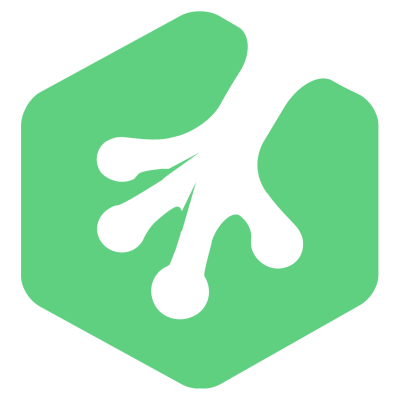We independently test and review every course that we recommend.
Please support us by joining our mailing list, and recommending this guide to others.
Updated: January 5, 2024

Scrimba
By Per Harald Borgen
Scrimba’s Learn JavaScript course is far and away the best free resource for learning JavaScript, as well as one of the best paid options if you choose to subscribe.
Scrimba's Learn JavaScript course covers the essential topics to get you working with JavaScript. The course is highly interactive, with a sequence of hands-on exercises that build small bits of a larger project, so you work towards building something interesting the whole time and spend most of the course with your hands on the keyboard.
The entire course curriculum is available for free, so you could choose to use Scrimba to learn JavaScript entirely for free. But we highly recommend purchasing a Pro subscription for a month or two while going through this course in order to get a certificate, full access to the community, and code reviews.
Scrimba's code reviews are stellar, providing a high amount of personalized feedback. Reviewers give feedback via Scrimba's interactive screencast format, so you get audiovisual feedback on your code.
To get really good at JavaScript, we suggest continuing with the Essential JavaScript Concepts and Next-level JavaScript courses. Both are part of the Frontend Developer Career Path.

Udacity
By Various Authors
The price point is high, but the quality of instruction is also among the highest. If you complete the intro course and intermediate JavaScript Nanodegree, you will be a strong JavaScript developer and have three portfolio projects you can use when applying for jobs.
The Intro courses will get you up and running with the core functionality of JavaScript, and the Intermediate JavaScript nanodegree continues into Object Oriented JavaScript, Functional Programming, and Asynchronous JavaScript, three courses that will take you to the professional level.
Each course contains a combination of videos, quizzes, hands-on exercises, and projects. You'll spend a lot of time practicing and developing JavaScript skills.
The projects are the real star here. All projects follow a real world scenario and have specs that you need to meet in order to pass, and are graded by a human. You'll receive personalized feedback, which is incredibly helpful.
Our initial research involved spending hours reading hundreds of reviews of various course options, and perusing forums for recommendations and user preferences. From this research, we narrowed down to a list of 12 highly-rated candidate courses.
We graded the candidate courses against the following criteria:
From this thorough research and testing, we're confident this is the single best guide to JavaScript courses available.

Frontend Masters
By Various Authors
One of the top video-based JavaScript learning resources available. If you complete the introductory JavaScript courses plus the first 3-4 courses in the Learn JavaScript path, you'll become fairly solid with JavaScript.
Frontend Masters courses are taught by some of the leading teachers and industry practitioners, so you'll learn how JavaScript is actually used by developers in the real world.
These courses are recorded as real-time workshops, and include code files so you can follow along.
Since their instructors come from the front lines of some of the world’s top startups, their courses are loaded with real-world insights and examples.
As a subscriber, you have access to a Discord server where Frontend Masters staff and instructors hang out and answer questions. It's one of the more valuable learning communities out there.

Codecademy
By Various Authors
A solid option for learning JavaScript through hands-on exercises, though it provides a bit too much hand-holding.
The Introduction to JavaScript course takes learners from the basics of JavaScript and walks through most of the key features you’ll use when writing programs with JavaScript. You’ll learn variables, data types, conditionals, how to write functions, global and block-level scope, using arrays to store lists of data, using loops to execute blocks of code multiple times, using iterators to simplify looping over arrays, and working with objects. In the Intermediate Course, you’ll dig into classes, modules, and asynchronous programming.
Most of the learning takes place through short readings and coding exercises, meaning you spend most of your time with hands on the keys, coding. This is a great way to quickly and effectively learn programming.
However, the projects provide a bit too much hand holding, with detailed instructions that don't really push you to solve problems. To get really good at JavaScript, you'll want to supplement this course with additional independent practice projects. For example, through Frontend Mentor.

Treehouse
By Various Authors
Treehouse's Fullstack JavaScript path will equip you with the skills you need to write JavaScript professionally, either as a frontend developer or fullstack JavaScript developer.
This learning path combines Treehouse's Beginning JavaScript path with more professional-level training.
One of the most impressive features is the interactive assessment. If you already know some JavaScript when starting out, you can test out of sections of the path that you already know.
And the assessment is pretty impressive, with some challenging questions on an array of topics, and actual code that gets checked.
The path includes frequent Coding Challenges, where you type your code into an in-browser text editor. Each code challenge runs a program in the background that tests your code and returns feedback. It's not quite as good as getting a personalized code review, but it's one of the best in-browser exercise formats we've seen.

Pluralsight
By Various Authors
Pluralsight is one of the best video-based learning options, largely due to the quality of Pluralsight's expert authors and their consistently high production quality.
Pluralsight’s JavaScript 2022 path contains a series of video courses covering everything from the basics of JavaScript to object-oriented programming with JavaScript and functional programming with JavaScript.
The courses are concise and scoped well to cover the core topics without too much overlap.
Concepts are almost always explained well and demonstrated using a scenario - a fictitious real world context that make explanations and demonstrations more practical and realistic to what you'll encounter when building websites with JavaScript.

FreeCodeCamp
By Unknown
If you’re brand new to programming, this is a great starting point for learning the basics, especially since it's free. After getting up to speed with the basics, you should consider moving to another more robust solution grounded in real world application.
This course is part of FreeCodeCamp’s JavaScript Algorithms and Data Structures Certification, and covers the essentials of programming with JavaScript. After taking the course, you’ll understand variables, arrays, objects, loops, and functions and be able to write basic programs with JavaScript.

Udemy
By Maximilian Schwarzmuller - Academind
Contains solid explanations of the essentials of JavaScript, with lots of real world examples for how the instructor actually uses JavaScript to build applications. We also really liked the assignments built in the course, which are designed to be completed on your own.
This course is aimed at providing novice programmers with enough knowledge to be able to write JavaScript professionally. The course moves from the basics of JavaScript through intermediate topics like object oriented programming, recursion, asynchronous programming. The explanations and examples are solid throughout, and the instructor occasionally incorporates assignments for you to complete on your own to check your understanding.
JavaScript is the most popular language used on the web, and can be used to create interactive websites as well as build the backend of a website. It’s a high-level, dynamic, and versatile programming language that allows for interactive and dynamic behavior on web pages, enabling functionalities such as handling user interactions, manipulating and updating HTML content, and making network requests.
In Stack Overflow’s annual developer survey, JavaScript has been the most widely used programming language for over 10 years, used by two-thirds of professional programmers. It’s a fantastic skill to add to your repertoire as a developer.
This guide outlines some excellent courses that teach JavaScript. We boosted courses that teach practical, professional usage, and left off courses that serve mostly as a library of JavaScript’s features. Whether your budget is $0 or $199+, you’ll find a great JavaScript course for your budget.
Since there’s a lot to learn when setting out to learn JavaScript, we’ve mostly included course series rather than standalone courses. Expect to spend 30-50 hours learning in order to build a solid foundation with JavaScript programming; but as with most skills, the more you practice, the better you’ll get.
When setting out to learn JavaScript, it's best to balance learning the core syntax as well as how to write programs with JavaScript. The following topics will get you up and running with JavaScript, writing dynamic interactive web interfaces.
Variables and Data Types: Understand how to declare variables, assign values, and work with different data types like numbers, strings, booleans, arrays, and objects. Learn about variable scope, hoisting, and how to perform basic operations and conversions.
Control Flow and Loops: Grasp control flow structures such as conditionals (if/else, switch), loops (for, while, do-while), and logical operators. Learn how to control program execution based on conditions and iterate over arrays or other data structures.
Functions: Understand the fundamentals of functions in JavaScript. Learn how to define functions, pass arguments, and return values. Explore function expressions, arrow functions, and higher-order functions.
DOM Manipulation: Learn how to interact with the Document Object Model (DOM) to dynamically manipulate HTML elements and update the content of web pages. Understand concepts like event handling, accessing elements, and modifying their properties or styles.
Objects and Prototypes: Gain knowledge of objects, prototypes, and object-oriented programming (OOP) concepts in JavaScript. Understand how to create objects, define properties and methods, and work with prototypes for inheritance and object composition.
Asynchronous JavaScript: Explore asynchronous programming in JavaScript using callbacks, Promises, and async/await. Understand how to handle asynchronous operations like API requests, timers, and file handling without blocking the execution of other code.
ES6+ Features: Familiarize yourself with modern JavaScript features introduced in ECMAScript 6 (ES6) and later versions. This includes concepts like arrow functions, template literals, destructuring, spread/rest operators, modules, and more.
Help us out by joining our email list to get notified when we release new guides, and recommending this guide to others.
Thanks for reading!